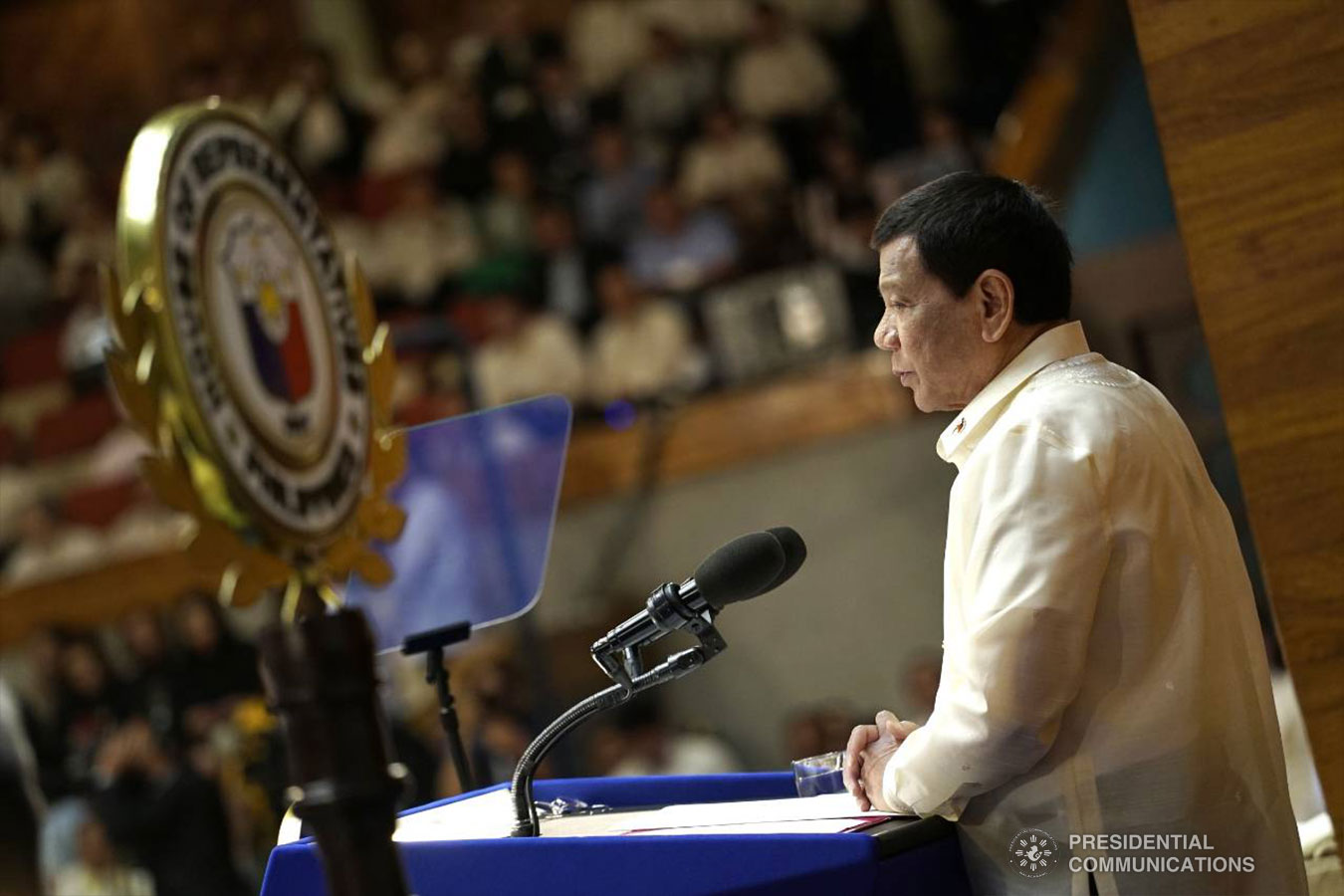Business and Economy
Lower interconnection rates to benefit new telco player: PRRD

The President vowed that his administration will ensure that telco services in the country are “reliable, inexpensive and secure” and that the guidelines for the entry of a new major telco player will be “fair, reasonable and comprehensive” ROBINSON NIÑAL JR./PRESIDENTIAL PHOTO (File photo)
MANILA — Lowering interconnection rates of telecommunication firms will help create a competitive environment for a new player to enter the industry and provide services to the public, President Rodrigo R. Duterte said.
“We shall, therefore, lower interconnection rates between all industry players.
Not only to lessen the cost to the consumers as it will also lower the costs for the incoming player to access existing networks, thereby creating a market environment that is more conducive to competition. This is a policy which is crucial to ensure that our solution to our telecommunication problems will be both meaningful and lasting,” Duterte said in his State of the Nation Address (SONA) at the Batasang Pambansa Complex in Quezon City Monday.
The President vowed that his administration will ensure that telco services in the country are “reliable, inexpensive and secure” and that the guidelines for the entry of a new major telco player will be “fair, reasonable and comprehensive”.
“It will be inclusive so it will be open to all interested private parties, both foreign and local. The only condition is that the chosen entity must provide the best possible services at reasonably accessible prices,” he said.
The DICT has ordered the NTC to craft policies that would result in the reduction of interconnection rates for both short messaging services (SMS) and voice calls of telcos through its Department Order No. 002-2018.
The NTC released an order last July 19 wherein telcos will be charging PHP0.50 per minute from PHP2.50 per minute for voice calls while text messaging will be at PHP0.05 per text message from PHP0.15.
Mobile subscribers are expected to experience lower charges on voice calls and text messages by August.
An oversight committee has likewise approved the draft guidelines that will use the mode of highest committed level of service (HCLoS) to select the third telco player on July 20.
Under Administrative Order 11, Duterte has created an oversight committee to assist the National Telecommunications Commission (NTC) in the formulation of the guidelines for the selection and assignment of radio frequencies for the entry of new telco player.
The HCLoS mode will award a bidder through corresponding points based on network coverage, broadband speeds, and annual capital and operating expenditures over a five-year commitment period.
Telco industry stakeholders have expressed preference for this mode of selection.
The DICT hopes to select the new telco player by December and start its operations next year. It projects that this firm would be able to become established and deliver telecommunication services by 2020.





















